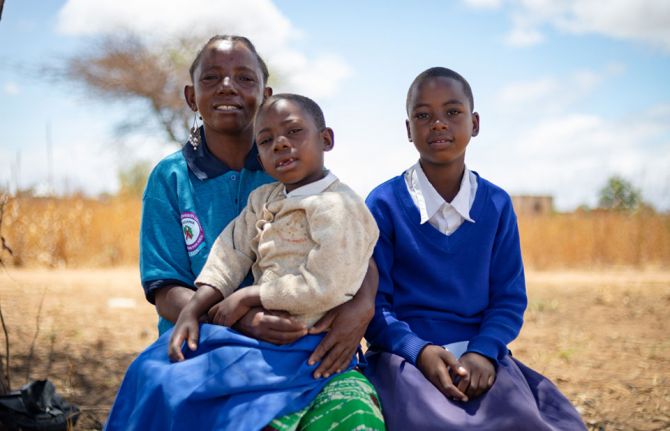

Press Statement
UNAIDS urges all countries to seize the opportunity to unleash the power and potential of this generation of girls
11 October 2019 11 October 2019GENEVA, 11 October 2019—There are approximately 1.1 billion girls in the world today. The largest generation of girls in human history. A formidable and unprecedented new generation of young women are demanding action and accountability on the many issues affecting them, from climate change to girls’ education, gender equality, ending early, forced and child marriage, menstrual health and eliminating gender-based violence.
On the International Day of the Girl Child, which this year runs under the theme “GirlForce: unscripted and unstoppable”, UNAIDS reaffirms the imperative to empower, invest in and engage adolescent girls and young women in shaping the AIDS response and the broader health and development agendas.
“Gender inequality, harmful gender norms and the epidemic of gender-based violence continue to block millions of girls from exercising their rights and reaching their full potential,” said Gunilla Carlsson, UNAIDS Executive Director, a.i. “Investing in the empowerment, rights and health of adolescent girls is one of the most important investments of our time.”
Multiple and intersecting sociocultural, economic and health issues heighten girls’ and young women’s vulnerability to HIV, with the most socially and economically marginalized girls and young women most affected by the epidemic. In 2018, every week around 6000 adolescent girls and young women (aged 15–24 years) were newly infected with HIV. Most of the new infections were in sub-Saharan Africa, where four out of five young people aged 15–19 years who became infected with HIV were female.
In addition, gender inequalities and gender-based violence are forcing thousands of girls into marriage and motherhood. Worldwide every year, 12 million girls under the age of 18 years are married and every day 20 000 girls under the age of 18 years give birth in developing countries. Early marriage often means that girls find it difficult to negotiate safer sex within the marriage, making them especially vulnerable to HIV and other sexually transmitted infections.
The bold targets of the 2016 United Nations Political Declaration on Ending AIDS and the UNAIDS 2016–2021 Strategy uphold the empowerment of women and girls, rights and gender equality as imperatives to ending AIDS and achieving the Sustainable Development Goals. UNAIDS urges all countries to seize the opportunity to unleash the power and potential of this generation of girls.
UNAIDS
The Joint United Nations Programme on HIV/AIDS (UNAIDS) leads and inspires the world to achieve its shared vision of zero new HIV infections, zero discrimination and zero AIDS-related deaths. UNAIDS unites the efforts of 11 UN organizations—UNHCR, UNICEF, WFP, UNDP, UNFPA, UNODC, UN Women, ILO, UNESCO, WHO and the World Bank—and works closely with global and national partners towards ending the AIDS epidemic by 2030 as part of the Sustainable Development Goals. Learn more at unaids.org and connect with us on Facebook, Twitter, Instagram and YouTube.
Press centre
Download the printable version (PDF)
